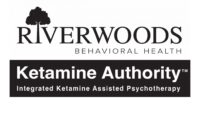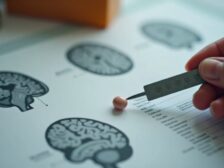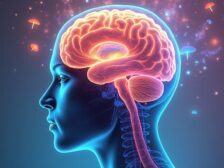
We're witnessing a revolution in PTSD treatment with ketamine-assisted psychotherapy. This pioneering approach combines ketamine's rapid symptom relief with traditional therapy, offering hope to those who've struggled with conventional methods. By modulating neurotransmitters and promoting neuroplasticity, ketamine helps patients process traumatic memories more effectively. Studies show up to 70% of individuals experience significant improvement, with benefits often lasting months after treatment. While it's not without risks, the therapy's safety profile is strong when administered in controlled settings. As we investigate this innovative treatment further, we'll uncover how it's altering lives and reshaping our understanding of PTSD recovery.
Understanding Ketamine-Assisted Psychotherapy
In recent years, ketamine-assisted psychotherapy has emerged as a promising treatment for Post-Traumatic Stress Disorder (PTSD). This innovative approach combines the dissociative effects of ketamine with traditional psychotherapy techniques to help patients process traumatic memories and emotions more effectively.
Ketamine's history as an anesthetic dates back to the 1960s, but its potential for treating mental health conditions has only recently gained attention. In ketamine-assisted psychotherapy, patients receive a controlled dose of ketamine, which can induce a temporary altered state of consciousness. This state allows individuals to access and process traumatic memories with less emotional intensity, potentially leading to faster and more significant healing.
While this treatment shows promise, it's essential to recognize that ketamine-assisted psychotherapy isn't yet widely available. Treatment accessibility remains a challenge due to regulatory restrictions and the need for specialized training among mental health professionals.
However, as research continues to demonstrate its efficacy, we're likely to see increased efforts to make this therapy more accessible to those suffering from PTSD. As with any emerging treatment, it's vital to consult with qualified healthcare providers to determine if ketamine-assisted psychotherapy is appropriate for individual cases.
PTSD: A Complex Mental Health Challenge
While innovative treatments like ketamine-assisted psychotherapy offer new hope, we must first understand the complex nature of PTSD itself.
Post-Traumatic Stress Disorder is a complex mental health condition that develops in response to experiencing or witnessing traumatic events. It's characterized by a range of symptoms that can greatly impact daily life, including intrusive memories, nightmares, hypervigilance, and avoidance behaviors.
PTSD affects individuals differently, with varying trauma responses and levels of emotional resilience. Some may experience immediate symptoms, while others mightn't show signs until months or even years after the traumatic event.
The disorder can manifest in physical, emotional, and cognitive symptoms, making it challenging to diagnose and treat effectively.
We've learned that PTSD isn't just about the traumatic event itself, but also how the brain processes and stores that information.
It can alter brain structure and function, particularly in areas responsible for memory, emotion regulation, and stress response. Understanding these neurobiological changes is vital for developing targeted treatments that address the root causes of PTSD, rather than just managing symptoms.
Ketamine's Unique Mechanism of Action
At the heart of ketamine's effectiveness in treating PTSD lies its unique mechanism of action. Unlike traditional antidepressants, ketamine works rapidly by modulating key neurotransmitters in the brain. It primarily targets the glutamate system, which plays a vital role in mood regulation and memory formation.
When administered, ketamine blocks NMDA receptors, leading to a cascade of neurochemical changes. This blockade triggers a surge in brain-derived neurotrophic factor (BDNF), promoting neuroplasticity and the formation of new synaptic connections. These changes help rewire traumatic memories and reduce their emotional impact.
Ketamine's rapid antidepressant effects are particularly remarkable. While conventional medications may take weeks to show results, ketamine can alleviate symptoms within hours. This quick action is especially beneficial for PTSD patients experiencing severe distress or suicidal thoughts.
Moreover, ketamine's influence extends beyond immediate symptom relief. It appears to enhance the effectiveness of psychotherapy by increasing cognitive flexibility and reducing fear responses.
This synergistic effect allows patients to engage more fully in trauma-focused treatments, potentially accelerating their healing process.
We're witnessing a significant shift in PTSD treatment, with ketamine offering hope to those who've struggled with conventional therapies.
Benefits for PTSD Symptom Relief
Ketamine's unique mechanism of action translates directly into significant benefits for PTSD symptom relief. We've observed that patients often experience rapid improvements in their symptoms, sometimes within hours of treatment. This quick onset of relief can be life-changing for those who've struggled with traditional therapies.
The benefits of ketamine for PTSD symptom relief include:
- Reduced intrusive thoughts and flashbacks
- Decreased hypervigilance and anxiety
- Improved mood and overall quality of life
We've found that ketamine therapy, when combined with mindfulness techniques and support groups, can enhance its effectiveness. Patients report feeling more present and less overwhelmed by their traumatic memories. This allows them to engage more fully in their healing process.
It's important to note that while ketamine offers promising results, it's not a standalone cure. We recommend an extensive treatment approach that includes ongoing therapy and support.
The Ketamine Therapy Process
The ketamine therapy process involves three key phases: preparation, administration, and integration.
In the preparation phase, we'll assess your medical history, current medications, and overall health to confirm you're a suitable candidate for ketamine therapy. We'll also discuss your expectations and address any concerns you may have.
The administration phase is where you'll receive the ketamine treatment. This typically occurs in controlled treatment settings, such as specialized clinics or hospitals.
Ketamine can be administered through various routes, including intravenous infusion, intramuscular injection, or nasal spray. The method of ketamine administration will be determined based on your specific needs and the healthcare provider's recommendation.
During the treatment session, you'll be closely monitored by medical professionals to guarantee your safety and comfort. The effects of ketamine are usually felt within minutes, and the session typically lasts about an hour.
The integration phase is essential for maximizing the benefits of ketamine therapy. We'll work with you to process your experience, discuss any observations gained, and develop strategies to incorporate these observations into your daily life.
This may include follow-up therapy sessions, mindfulness practices, or lifestyle changes to support your ongoing healing expedition.
Combining Psychotherapy With Ketamine Treatment
While ketamine therapy alone can be effective, combining it with psychotherapy often leads to more significant and lasting results. This integrative approach allows patients to process their experiences and understandings gained during ketamine sessions with the guidance of a trained therapist.
Therapeutic integration helps patients make sense of their emotions, memories, and revelations, encouraging deeper healing and personal growth.
The combination of ketamine and psychotherapy typically follows this structure:
- Pre-ketamine therapy session to set intentions and prepare mentally
- Ketamine administration in a controlled, comfortable environment
- Post-ketamine integration session to process experiences and understandings
Patient experiences suggest that this combined approach enhances the overall effectiveness of PTSD treatment. The ketamine's neuroplasticity-promoting effects create a window of opportunity for psychotherapy to have a more significant impact.
Therapists can help patients investigate traumatic memories with reduced emotional intensity, allowing for reprocessing and resolution.
We've observed that patients who undergo this combined treatment often report faster symptom improvement and longer-lasting relief compared to those who receive ketamine or psychotherapy alone.
Safety and Potential Side Effects
How safe is ketamine therapy for PTSD, and what side effects might patients experience? When administered in a controlled therapeutic environment by trained professionals, ketamine therapy is generally considered safe. However, as with any medical treatment, it's not without risks.
During treatment, patients are closely monitored for any adverse reactions. Common side effects may include dizziness, nausea, and temporary dissociation. These effects typically subside shortly after the infusion ends. Some patients report feeling fatigued or experiencing mild headaches in the hours following treatment.
More serious side effects, though rare, can include increased blood pressure, respiratory depression, or allergic reactions. It's vital that patients disclose their full medical history and current medications to their healthcare providers before starting ketamine therapy.
We must also consider the potential for psychological effects. While many patients report positive experiences, some may find the dissociative effects unsettling. That's why patient monitoring and support during and after treatment are essential components of ketamine therapy for PTSD.
It's important to note that ketamine's long-term effects when used for PTSD treatment are still being studied. Ongoing research will help us better understand its safety profile over extended periods.
Long-Term Outcomes and Recovery Rates
As we look beyond immediate treatment effects, understanding long-term outcomes and recovery rates becomes paramount for patients considering ketamine therapy for PTSD. Studies have shown promising results, with many individuals experiencing sustained symptom relief and improved quality of life months after treatment.
When evaluating long-term effects and recovery trajectories, we've observed three key factors that influence success:
- Frequency and duration of treatment sessions
- Integration of ketamine therapy with other therapeutic modalities
- Ongoing support and follow-up care
We've found that patients who engage in a thorough treatment plan often achieve better long-term outcomes. Recovery rates vary, but research indicates that up to 70% of individuals report significant improvement in PTSD symptoms after completing a ketamine therapy protocol.
It's important to note that recovery is a unique path for each patient. While some experience rapid and lasting relief, others may require maintenance sessions to sustain progress.
We encourage patients to work closely with their healthcare providers to monitor their progress and adjust treatment plans as needed. By focusing on individualized care and ongoing support, we can help maximize the potential for long-term recovery and improved well-being.
In Summary
We've investigated ketamine-assisted psychotherapy as a pioneering approach for PTSD treatment. This innovative therapy shows promise in providing rapid symptom relief and facilitating deeper psychological healing. While it's not without risks, the potential benefits are significant. As research continues, we're optimistic about its role in altering PTSD care. We encourage those struggling with PTSD to discuss this option with their healthcare providers, as it may offer new hope on their healing expedition.











